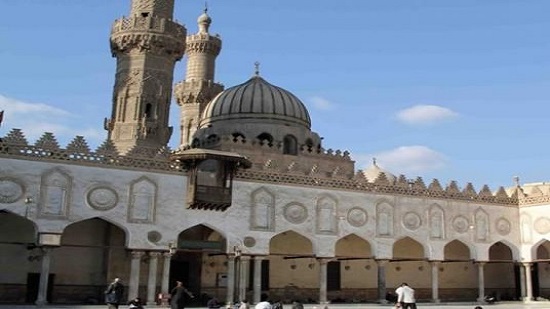Egyptian authorities said on Tuesday that Muslim clerics will be required to read out identical pre-written weekly sermons as part of the government's campaign against extremism, drawing angry criticism from some preachers.
The ministry of religious endowments has since 2014 been providing imams with topics for their sermons at Friday prayers but the latest move confines preachers across the country to reading from the same script.
"No one disagreed during the meeting [of officials on Tuesday] and all the undersecretaries received the new instructions on pre-written unified sermons without incident," said the ministry's First Undersecretary for Qalyubiya province Sabry Dowaidar.
"The minister [Mohamed Gomaa] said he would start with himself and deliver the pre-written sermon [in a mosque] next Friday."
An undersecretary from a different province who requested anonymity said the sermons would be written by ministry officials and senior clerics from Al-Azhar, the 1,000-year-old centre of Islamic learning in Cairo.
Members of parliament on the House Committee on Religious Affairs would contribute too, as would sociologists and psychologists.
Officials say the move will force preachers to stick to a suitable time limit and ensure they do not "lose their train of thought".
Opposition
Several preachers voiced anger at the move, saying it would prevent talented preachers from shining and that different communities had different issues of interest that needed to be discussed in the mosque.
"Everywhere in Egypt, every city or village, has different circumstances. A certain village might have a robbery problem and so the sermon should talk about thievery. Another place might have widespread murder and that is what should be discussed," said Abdelsalam Mahmoud, an imam at a mosque in the southern city of Luxor.
President Abdel Fattah al-Sisi, who came to power after leading the military overthrow of an Islamist president, has made "reforming religious discourse" and combating extremism a priority. He sees militant Islamism as an existential threat.
In 2013 the religious endowments ministry fired 55,000 preachers not authorised by Al-Azhar, shortly after the military ousted the Muslim Brotherhood's Mohamed Morsi from the presidency, following mass protests against his rule.
The preachers were accused of inciting violence and spreading extremist views and supporting the Brotherhood, the world's oldest Islamist movement.
The government does not differentiate between groups like the Brotherhood, which says it is peaceful, and Islamic State which is mounting an insurgency in Egypt's Sinai Peninsula and has killed hundreds of soldiers and police.



